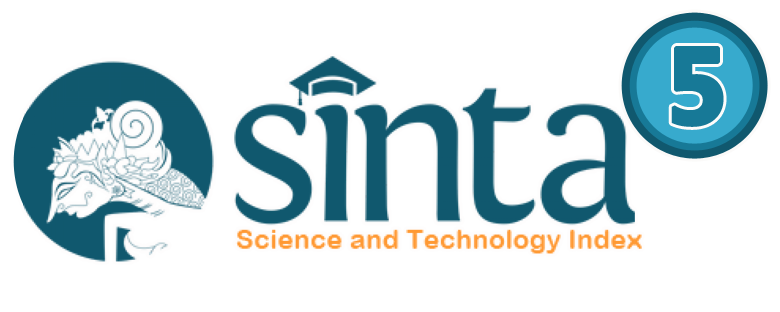THE ROLE OF ARTIFICIAL INTELLIGENCE (AI) IN ESSAY WRITING
Abstract
Keywords
Full Text:
PDFReferences
Abimanto, D., & I. M. (2023). Efektivitas penggunaan teknologi AI dalam pembelajaran Bahasa Inggris. Sinar Dunia: Jurnal Riset Sosial Humaniora dan Ilmu Pendidikan, 1(2), 256–266. https://doi.org/10.55681/armada.v1i2.393
Acemoglu, D., & Restrepo, P. (2019). Automation and new tasks: How technology displaces and reinstates labor. Journal of Economic Perspectives, 33(2), 3–30.
Ali, O. B., & Mtalsi, D. (2024). Insights from educators: Exploring the role of artificial intelligence in academic writing. Ikhtilaf Journal of Critical Humanities and Social Studies, 2(1), Fall 2024.
Anderson, S. S. (2023). “Places to stand”: Multiple metaphors for framing ChatGPT's corpus. Computers and Composition, 68, 102778.
Bagacina, C. S. (2024). Grammatical error analysis of college students’ essay of the University of Saint Anthony. SIGEH ELT: Journal of Literature and Linguistics, 4(1). https://journal.uml.ac.id/ELt/article/view/2457/pdf
Birt, L., Scott, S., Cavers, D., Campbell, C., & Walter, F. (2016). Member checking: A tool to enhance trustworthiness or merely a nod to validation? Qualitative Health Research, 26(13), 1802–1811.
Braun, V., & Clarke, V. (2006). Using thematic analysis in psychology. Qualitative Research in Psychology, 3(2), 77–101. https://doi.org/10.1191/1478088706qp063oa
Chen, C., & Gong, Y. (2025). The role of AI-assisted learning in academic writing: A mixed methods study on Chinese as a second language students. Education Sciences, 15(2), 141. https://doi.org/10.3390/educsci15020141
Cheung, S. K. S. (2015). A case study on the students’ attitude and acceptance of mobile learning. Communications in Computer and Information Science, 45–54.
Crocket, J. (2023). How AI is being used in education. Datamation. Retrieved from https://www.datamation.com/artificial-intelligence/how-ai-is-being-used-in-education/
Dian, T. Y. G., Sukyadi, D., Hamied, F. A., & Sumakul. (2022). Students’ perception of the use of AI in a writing class. https://doi.org/10.2991/assehr.k.220201.009
Ikrawansyah, I., & Romadhon, M. (2024). Artificial intelligence (AI) is not a writing god, so why do post-graduate students believe it? Jurnal Paedagogy, 11(3), 647–658. https://doi.org/10.33394/jp.v11i3.11994
Johnson, R. (2019). The potential of AI in language education. Journal of Educational Technology, 42(3), 187–203.
Kim, J., Yu, S., Detrick, R., & Li, N. (2024). Exploring students’ perspectives on generative AI-assisted academic writing. Education and Information Technologies. https://doi.org/10.1007/s10639-024-12878-7
Lincoln, Y. S., & Guba, E. G. (1985). Naturalistic inquiry. SAGE Publications.
Patton, M. Q. (1999). Enhancing the quality and credibility of qualitative analysis. Health Services Research, 34(5 Pt 2), 1189–1208.
Popenici, S. A., & Kerr, S. (2017). Exploring the impact of artificial intelligence on teaching and learning in higher education. Research and Practice in Technology Enhanced Learning, 12(1), 1–13.
Pratama, R. M. D., & Hastuti, D. P. (2024). The use of artificial intelligence to improve EFL students’ writing skill. English Learning Innovation, 5(1), 13–25. https://doi.org/10.22219/englie.v5i1.30212
Samantaray, R. R., & Azeez, A. (2024). AI tools for efficient writing and editing. IGI Global. https://doi.org/10.4018/979-8-3693-1798-3.ch004
Setiawan, A., & Luthfiyani, U. K. (2023). Penggunaan ChatGPT untuk pendidikan di era Education 4.0: Usulan inovasi meningkatkan keterampilan menulis. Jurnal Petisi (Pendidikan Teknologi Informasi), 4(1), 49–58. https://doi.org/10.36232/jurnalpetisi.v4i1.3680
Shidiq, M. (2023). The use of artificial intelligence-based ChatGPT and its challenges for the world of education: From the viewpoint of the development of creative writing skills. Society and Humanity, 1(1).
Stojanovic, L., Radojcic, V., Savić, S., Cvetkovic, A. S., & Sarcevic, D. (2023). The influence of artificial intelligence on creative writing: Exploring the synergy between AI and creative authorship. International Journal of Engineering Inventions, 12(12), 70–74.
Storey, V. A. (2023). AI technology and academic writing: Knowing and mastering the “craft skills.” International Journal of Adult Education and Technology, 14(1), 1–15. https://doi.org/10.4018/ijaet.325795
Syafiuddin, N., Unde, A. A., & Akbar, M. (2024). The influence of technology literacy and the use of artificial intelligence (AI) by Hasanuddin University students on the change of habits in completing academic tasks. International Journal of Religion, 5(10), 4595–4610. https://doi.org/10.61707/vs303751
Thorp, H. H. (2023). ChatGPT is fun, but not an author. Science, 379(6630), 313.
Ward, B., Bhati, D., Neha, F., & Guercio, A. (2024). Analyzing the impact of AI tools on student study habits and academic performance. arXiv. https://doi.org/10.48550/arXiv.2412.02166
DOI: https://doi.org/10.36269/sigeh.v5i1.3115
Refbacks
- There are currently no refbacks.

This work is licensed under a Creative Commons Attribution-ShareAlike 4.0 International License.
ISSN ONLINE: 2775-8834




1.png)










